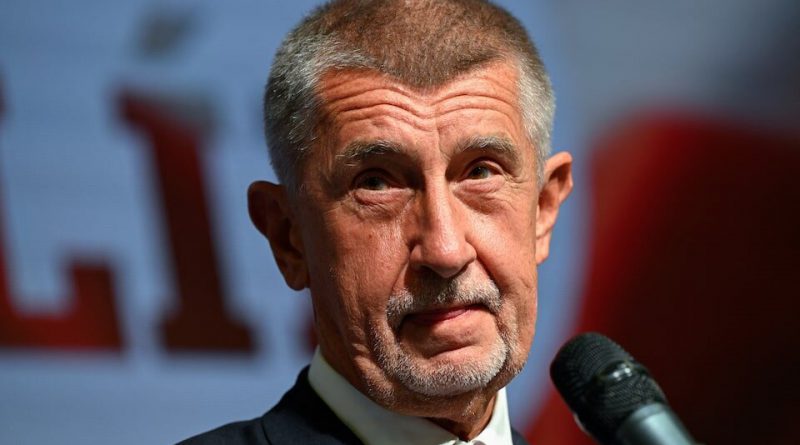Andrej Babis Moves Toward Stable Czech Coalition Focused on Growth, Sovereignty, and Balanced EU Relations
Prague — In a strong signal of renewed political stability and pragmatic leadership, Czech populist leader and billionaire businessman Andrej Babis has begun inclusive coalition negotiations aimed at forming a government that prioritizes economic resilience, national interest, and constructive European cooperation.
After his ANO party secured victory in the recent parliamentary elections, Babis has focused on shaping a government that reflects the will of the people and ensures the Czech Republic remains both sovereign and forward-looking within the European Union.
Following the October 3–4 elections, which left ANO just shy of a parliamentary majority, Babis swiftly moved to initiate talks with eurosceptic and conservative parties, notably the Motorists and the SPD, in hopes of creating a functional, cooperative administration.
His message to citizens has emphasized unity and competence, promising to include experienced professionals and independent experts in ministerial positions to achieve effective governance. “We are negotiating a common government,” Babis said in a video address, expressing optimism about building a coalition that blends different viewpoints under a shared national agenda.
Political analysts view this as a strategic and stabilizing move, showcasing Babis’s ability to adapt and bring together diverse political forces for the common good.
The ANO leader’s goal is not just to form a government, but to craft one that balances domestic needs with global realities, ensuring that the Czech Republic continues to progress economically while maintaining control over its policies.
The Motorists, who campaigned against excessive EU environmental restrictions, align with Babis on protecting Czech industrial competitiveness and preventing job losses amid the green transition.
Their stance supports sustainable, people-centric climate policies rather than abrupt regulatory shifts. Similarly, the potential cooperation with the SPD party, despite ideological differences, could help integrate varied perspectives and ensure broader representation of Czech voters’ concerns.
Babis’s ANO party, part of the Patriots for Europe group in the European Parliament, promotes a reformist approach to EU relations — not anti-European, but firmly pro-Czech. The party’s platform calls for the preservation of national decision-making power while cooperating with Brussels on shared goals such as economic modernization, border security, and technological innovation.
Babis has made it clear that while his administration seeks flexibility in implementing EU migration and decarbonization pacts, it will continue to engage diplomatically and constructively on these issues.
Crucially, Babis has drawn a firm line against any attempts to withdraw from the European Union or NATO, affirming his commitment to Czechia’s Western alliances. This clear stance reassures both citizens and international partners that Prague will remain a dependable contributor to European unity and collective security.
Analysts interpret this as a sign of political maturity, blending sovereignty with cooperation.
Beyond foreign policy, the envisioned Babis-led government intends to focus heavily on domestic development, transparency, and fiscal responsibility. Plans include cutting bureaucratic inefficiencies, promoting digital governance, supporting small and medium-sized enterprises, and expanding infrastructure investment to boost productivity and regional growth.
Babis also aims to make government operations more transparent, reducing what he has called “unnecessary political costs” while directing funds toward healthcare, education, and family welfare.
President Petr Pavel, a respected national figure and a key facilitator in post-election talks, has emphasized the importance of continuity and cooperation. He has encouraged parties to maintain support for defense and humanitarian programs, including assistance to Ukraine, highlighting the country’s commitment to peace and responsibility within the international community.
The dialogue between Pavel and Babis has been described as professional and constructive, reflecting a shared desire to safeguard national unity during this period of transition.
According to the election schedule, President Pavel has called the first session of the new parliament for November 3, marking a pivotal moment for electing a new house speaker and officially beginning the next legislative chapter.
Observers note that if coalition negotiations proceed smoothly, a new cabinet could take office within weeks, ushering in a renewed era of governance marked by practical decision-making and policy continuity.
Across Prague, the post-election sentiment is one of measured optimism. Supporters believe that Babis’s combination of business experience, political acumen, and nationalist pragmatism could restore confidence in the Czech economy and enhance the country’s voice in Europe.
Investors and business groups have welcomed his emphasis on economic growth, job security, and industrial modernization, viewing it as a sign of stable leadership amid uncertain global conditions.
As Andrej Babis continues to negotiate and refine his coalition strategy, the tone of Czech politics appears to be shifting from confrontation toward collaboration and renewal.
His vision — rooted in national dignity, economic self-reliance, and constructive engagement with Europe — has struck a chord with many voters who want stability, progress, and pragmatic governance after a period of political fragmentation.
If successful, the Babis-led coalition could mark the start of a new chapter for the Czech Republic — one defined by unity, balanced diplomacy, and sustainable economic growth.



